Vitaly Kalatalo is the Arlo backend team lead. Together with the development team, they build the backend part of the Arlo home video surveillance system with artificial intelligence technologies: the very invisible server part of the product, which is hidden from the eyes of ordinary users and the customer but enables the project’s existence and specifies the basic rules of work and logical processes in the system. We asked Vitaly how the Arlo backend works, about his career path from a railway electrical engineer to the head of development in one of the largest IT companies in Belarus.
Former railroad engineer
Before joining IT, I worked for a state-owned railway company as an automatic systems engineer. It was about seven years ago. I realized that I wanted to try myself in a new field at a particular point. At the institute, I studied railway-oriented programming, but that was quite a long time ago, and technologies have developed enormously since then. I started looking for a job as a Java programmer. I did not know these new technologies; therefore, I began to study them independently. It wasn’t easy. I studied in the evenings after a workday but realized there was not enough time and decided to quit the railway.
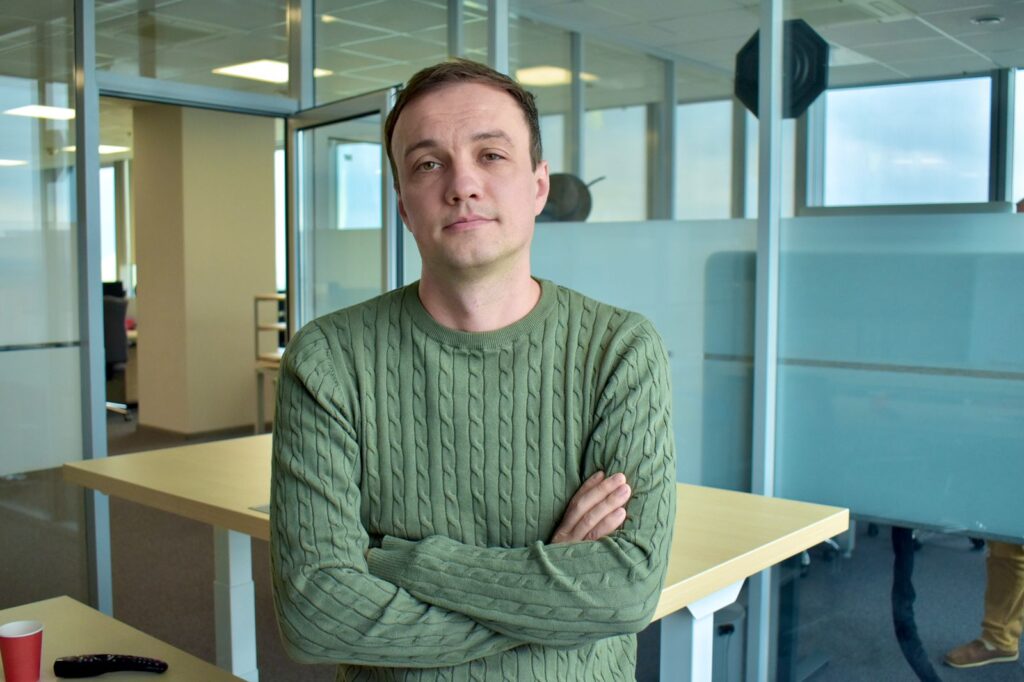
I had some savings that allowed me to devote myself exclusively to studying the new profession. Six months later, I had a portfolio that I began sending to companies. They started inviting me for interviews. However, all employers wanted to see a student or an experienced developer with whom they wouldn’t need to bother. Of course, I was worried, but I continued to believe. After several interviews, I got a job as a Junior Java Backend Developer. During interviews, everyone was concerned about whether I could work as a programmer or had enough motivation to learn. There was much to learn.
I understood the most important thing: It’s in your hands; you take care of your growth, and mentors help you grow in the right direction, protecting you from serious mistakes. You are lucky if you have a mentor. Often you have to take the first steps in an unknown direction by yourself. I had mentors, and I consider them excellent specialists. I was amazed that no one was running after me to teach me some technology, and nobody blamed me for not knowing much. And this is great. I was taught the correct attitude to business. There is a strictly vertical hierarchy in a state-owned railway company, but in the development teams, there is often no hierarchy at all; there is horizontal communication. The only thing that guides you is the work schedule because it is the most effective work that matters. This is an entirely different paradigm.
When changing one industry to another, there is uncertainty, which is always frightening. You will need help and support from your loved ones. If you have already chosen a direction, then you need to boldly move forward and achieve the result. Trust me, you will find your place in IT, the main thing is to believe in yourself.
For many, it is not easy to enter IT, especially for those who do it not upon graduation from the university. But everything is within our power: if there is will and eagerness, there will always be an open door.
My experience as an engineer helped me a lot: The ability to work in a team, discipline, approach, and responsibility. Many of our juniors and interns have to learn this from scratch. Any life experience is important. Therefore, when we invite new guys, we tell them that they can learn a lot from us. We are ready to teach because we were also once taught.
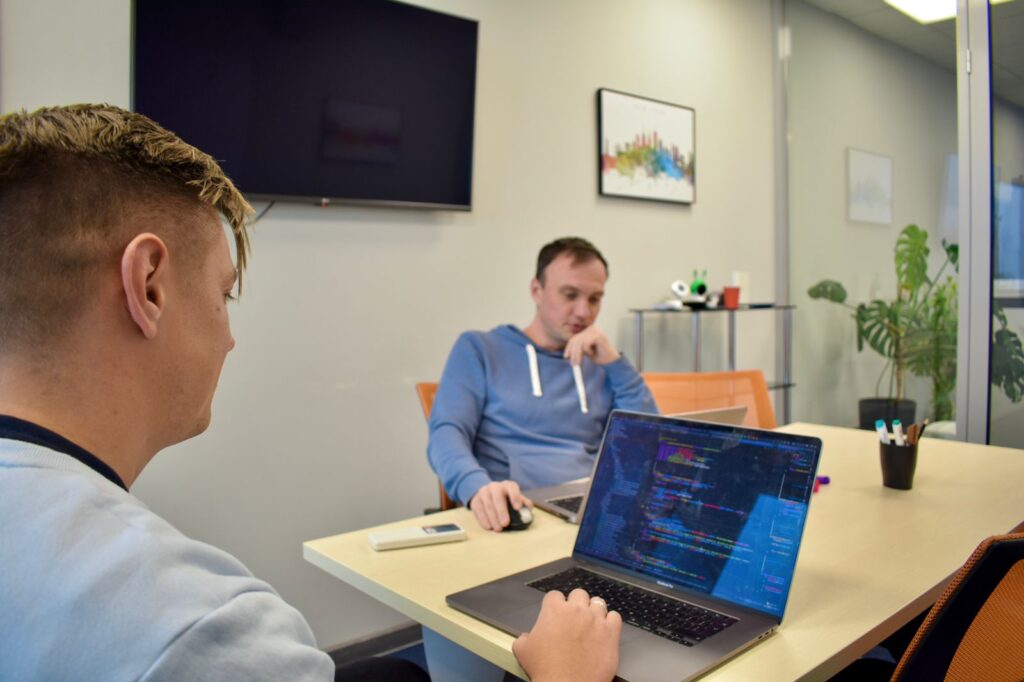
How I joined ITS Partner.
I came to ITS as a mature developer after four years of experience in the industry. By that time, I had tried various interesting solutions and domains. Therefore, I expected a serious conversation from the interview in ITS. I had several offers, so I felt pretty calm. A three-stage interview was unusual. We discussed how information systems are built and what the challenges are rather than how the tools and languages work and what is inside. We tried practical examples, made technical solutions, and suggested optimization methods. That interview was more like teamwork. I was charmed by the interview and the guys who conducted it: Pavel Sirotkin and Denis Dmitriev. Of course, it stuck in my memory and allowed me to consider working for this company seriously. And when I received an offer from them, I accepted it the same day.
What we do at ITS Partner.
We have several backend development teams. I am the team leader of the very first and largest team. All our products are premium and quite sophisticated in terms of technical filling. My team is making these products available to the broadest range of consumers, not only our direct buyers, the Arlo customers, but also other well-known companies such as Google, Amazon, Samsung, and other notable services such as voice assistants and Smart Home systems. We have B2B integrations, which are promising and much more challenging to implement. The team and I do everything possible to make it real and work well and reliably.
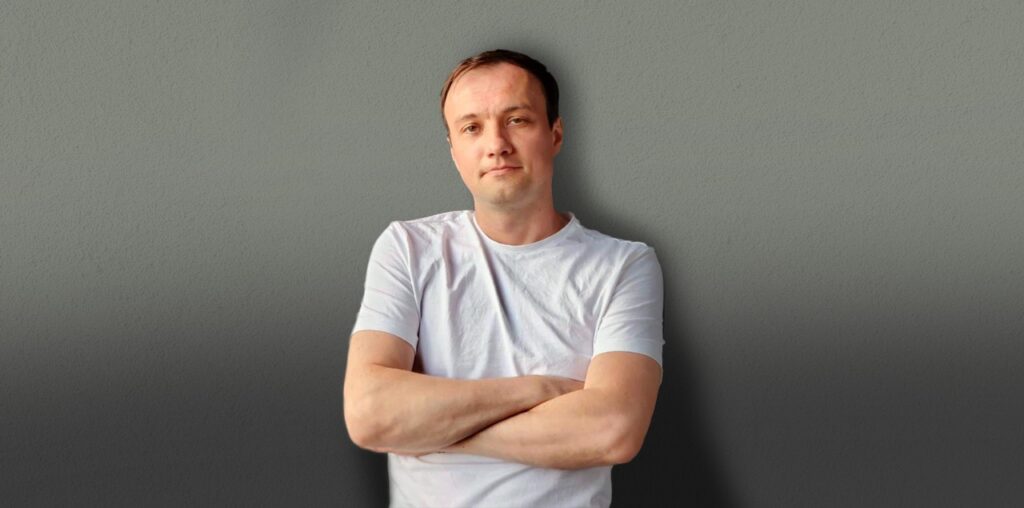
My team has six java-developers and the same number of QA automation specialists – testers who write programs in Python to confirm the product quality instead of making it manually. There are 6 teams in Arlo working on the backend, which is 40 developers. There are many teams, this is only a part of the backend. Some guys make firmware, IOS and Android clients, the web version, and some work on artificial intelligence. The Arlo company is, in fact, the market leader in artificial intelligence and image analysis. Many different teams are working to make this system seamless and cool. I think that the number of people working on the product goes as high as hundreds. This is invisible work, which is, however, extensive and important.
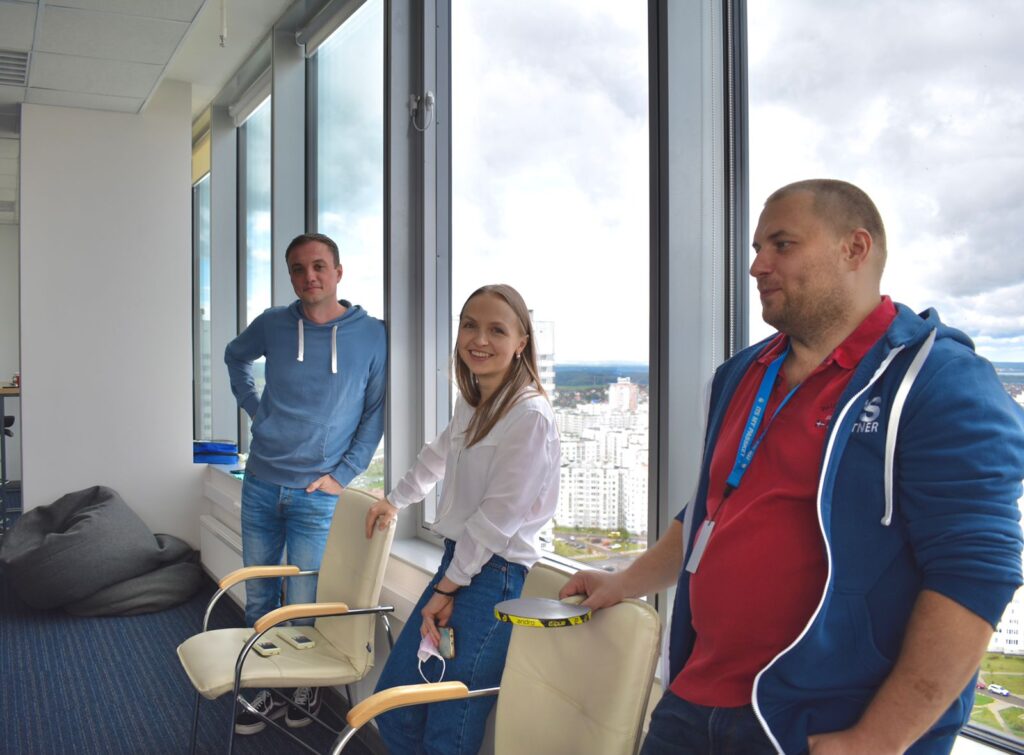
There are such technical challenges … Just imagine how to combine patchwork systems, which understand differently the Smart Home’s role or how they should work. There is still no single standard. We have vast experience, we are doing great work on the design and take into account many aspects, our team is growing stronger, so we are invading more exciting areas.
Developers need to understand and see where they are investing their efforts and what they are doing.
Each of us makes a significant contribution to the product and the market development, so we always have special feelings. Our team is a part of the changes. In the annual messages from the company’s management, we are told what is happening with the company, what will be released to the market next year, how we are helping the company right now, and where we have achieved success. We see the occupied market share and the company’s market growth dynamics. And we see that each of us makes this contribution. One thing is solving technical problems, another thing is seeing positive changes. For example, I like that we are not working for a casino. It seems that we are making the world a better and clearer place.
We are not looking for someone to blame.
We are never looking for someone to blame, we look at things slightly differently. We want to learn it before our clients do if something has happened. When a problem is resolved, or its effect is reduced to an acceptable business level, we try to figure out what we can do to prevent this problem from happening again. This is the most important thing. Of course, we understand that someone just made a mistake, but that’s okay, we are all human. Instead of looking for people to blame, we will spend our energy on improving the system and training our employees to avoid such a problem in the future and grow with the system.
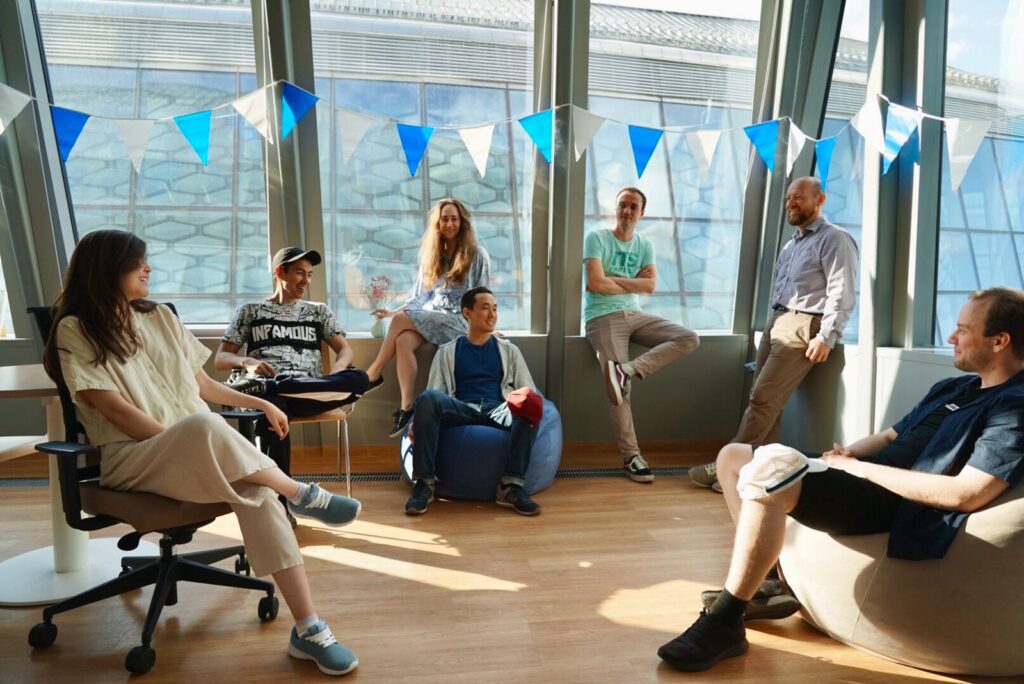
It is important to maintain a work/life balance. We do not approve of long hours, I do everything in my team to prevent them. Long hours are always bad. We can spend some time on production, but I don’t remember when we spent extra time on it. In general, we work in such way to avoid extra hours.
Where to study?
Courses are available all over the world, but it is not guaranteed that their quality is good everywhere. One critical issue that you must keep in mind is the IT industry is not a holiday, it is work where you solve problems for systems. There are many principles and practices in this industry, where discipline and predictability of decisions are important.
How to become a good backend developer?
A high entry threshold distinguishes backend developers. To become a good backend developer, you need to read and try a lot, you need a sound theoretical base, which is often available only at universities. Courses are fast-moving and usually do not provide such a base. It is difficult for the guys who do not have a sufficient base to work with us, they are not ready to solve complex problems. Of course, you can make this up, but the entry threshold is indeed high.
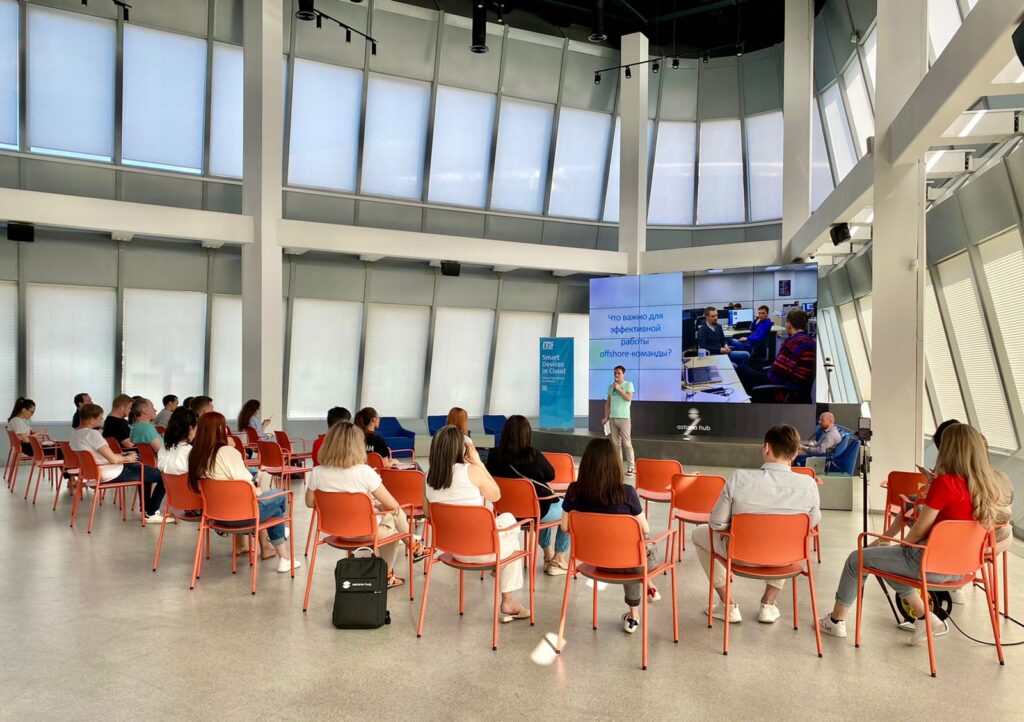
It is essential to understand that backend developers never see their work right away, as front-end developers do: you have drawn a button, and you see it. We see the result of our work sometime later, we have many things in our heads, which we cannot show. I can talk about a system that I don’t hold in my hands.
Why we need interns.
There are many tasks, plus there should be a natural rotation. Our mission is to find talented guys and give them a growth point. Of course, they do some work for us, which may not be interesting to us. But they will learn from this, and it will be easier for them. Even if an intern leaves us, we understand that we have invested in them, which means we have invested in the industry. We pass on our knowledge and learn to be mentors.
We consider any interns, from courses, universities, from any country, mature Java developers.
You can work from home or from the office. The only moment that interests us is the combination of work. If, for example, there is a shift in time zones, we would like one to spend most of their time with the main team. In this regard, Kazakhstan is attractive to us, because the shift in time zones is small.
At the beginning of this year, our company opened an office in Kazakhstan. Now we are in two cities: Nur-Sultan and Almaty. During this time, ten strong developers have joined us, and we will be strengthening the team. At ITS Partner, the strongest developers work on the best products, so this is an opportunity for technical growth for any specialist.
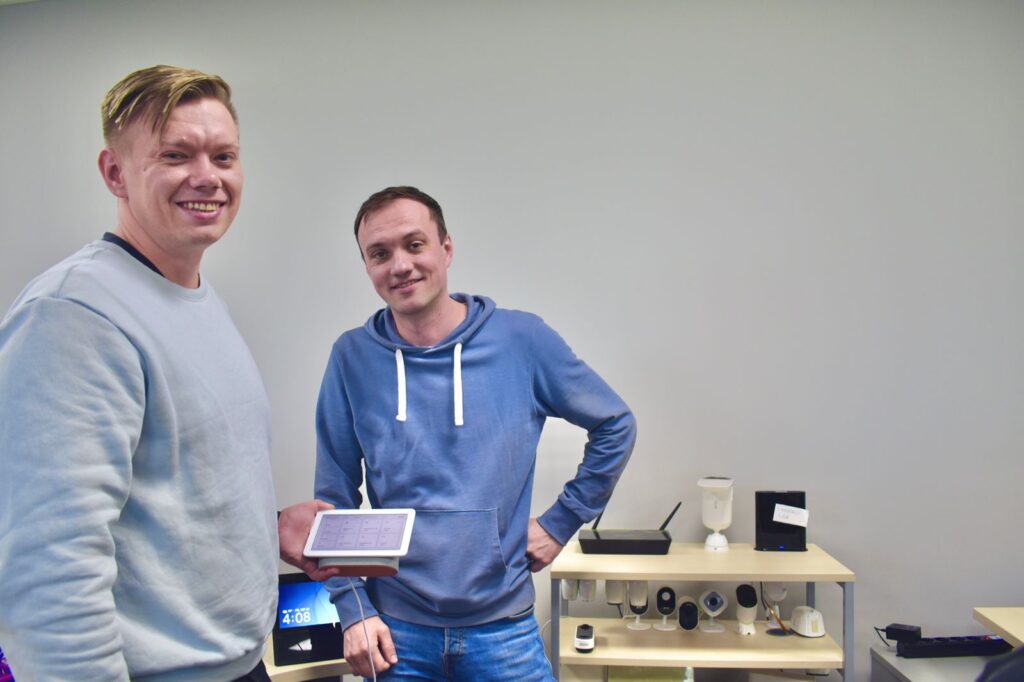
About salary in ITS.
I can say that the salary is adequate in the market but most likely is lower than what startups offer. Startup owners are ready to pay any compensation to specialists so that the project starts faster because of the investors’ money. Startups are constantly putting pressure on the market all over the world. Therefore, the choice is up to the candidate. In startups, you don’t know what will happen and how they will organize the development process, but the salary may be higher. Or you can go to a company with a different development approach, which has an established team, extensive expertise, and many various projects.
Why I love my job.
Our brain has endless possibilities. Compared to my work on the railway, where I didn’t have to think too often (which made me sad), my brain works faster and more actively here.
I like that great opportunities are opening for me, including my material independence: IT guys are known to make good money. I work with people who, by definition, are intelligent and interesting. In IT, you need to work hard, and this excludes people who could have joined through personal acquaintance or cronyism.
I feel like I am a part of a brilliant team where people do something big and important.
Source: ER10.kz